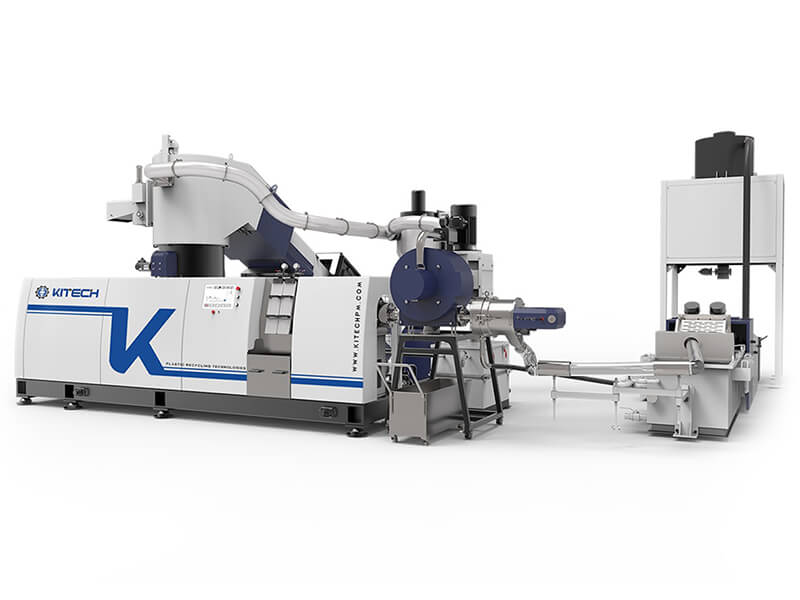JIANGSU KITECH MACHINERY CO.,LTD
The widespread use of recycled plastic granulators not only facilitates the recycling of waste plastics, but also creates economic benefits. But at present, my country's plastic granulation machinery and equipment are not perfect enough, with both advantages and disadvantages. While creating benefits for users, the smoke and waste water generated in the process of waste plastic processing are also increasingly polluting the environment. The manufacturing process of plastic granulator equipment is still very rough and so on.

Usually, most of the plastic granulators are heated and pressurized to make waste plastics flow through the machine head to extrude. A complete waste plastic recycling and granulation production line is composed of two parts: one is the plastic granulator (extruder for short) that melts and extrudes waste plastics, which is customarily called the main machine. This kind of plastic granulator known as the host is versatile, that is, the same plastic granulator can process many different waste plastic products, which is the previous stage of the plastic granulator. The second is the machine head (including the machine head), cooling system, pelletizing system and packing storage. These devices are used to cool molten plastics, pelletize and store them, and are customarily called extrusion auxiliary machines. This is the latter stage of the plastic granulator.
The advantages of plastic granulator are as follows:
① The production of machinery and equipment is simple, the price is low, and the investment of the plastic pellet factory is small.
②Most plastic granulators are continuously processed, so the production efficiency is high.
③ The automation technology level of machinery and equipment is high, and the labor cost is low.
④It is easy to manufacture and use, and the process control is strong.
⑤Plastic granulator extrudes uniform, full and high-quality granules.
⑥ Recycled particles have strong adaptability, not only most thermosetting plastics can be used in plastic granulators, but also a very small number of thermosetting plastics can also adapt to the environment.
⑦The plastic granulator produced is common, and one machine can be used for multiple purposes. The same granulator can produce different plastic products (including semi-finished products) as long as the auxiliary machine is replaced.
⑧The production line occupies a small area and the production process is clean.
Of course, plastic granulators also have their drawbacks:
① It is not possible to produce waste plastics with different physical properties.
②The waste plastic granulator has the problem of secondary pollution when processing waste plastic.
Due to the prominent advantages of the plastic granulator, the plastic granulator plays a vital role in the plastic processing industry. At present, most of the waste plastic recycling particles are processed through the plastic granulator equipment production line. 95% of the total amount of thermoplastics can be produced by screw granulator.
A small number of thermoplastics such as polytetrafluoroethylene resin (PTFE), because of the extremely high melt viscosity, cannot be in a viscous flow state even above the melting point temperature. Although they cannot be produced and processed by a screw granulator, they can also be made by a plunger Granulator extrusion. Now, the development of plastic granulator is very fast, and the general trend is to develop in the direction of large-scale, high-speed and automation.